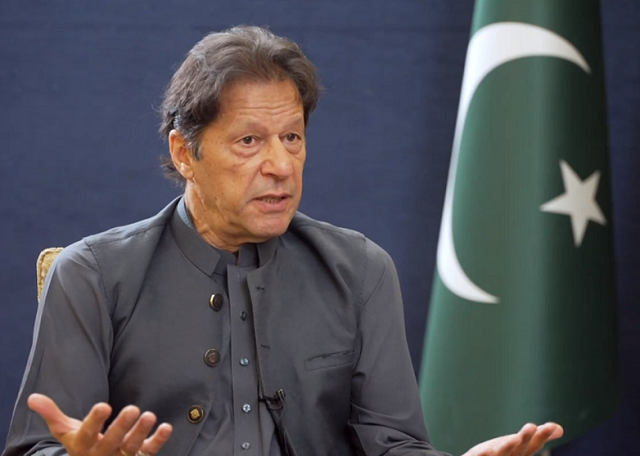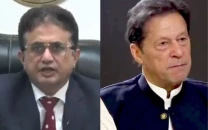Global aid will give Taliban reason to honour promises: PM Imran
In case of abandonment, chaos, mass migration and terrorism will follow, premier opines in Washington Post piece

Prime Minister Imran Khan has urged the global community to provide "consistent humanitarian and developmental assistance" to the Afghan Taliban as it would provide "additional leverage to continue persuading them to honour their commitments".
In an opinion piece for Washington Post, the prime minister wrote that the international aid will give Taliban a "greater reason" to stick to their promises. "Today, with Afghanistan at another crossroads, we must look to the future to prevent another violent conflict in that country rather than perpetuating the blame game of the past," Imran added.
According to the premier, engaging with the Taliban was the "right thing" to ensure peace in Afghanistan.
"The international community will want to see the inclusion of major ethnic groups in government, respect for the rights of all Afghans and commitments that Afghan soil shall never again be used for terrorism...Taliban leaders will have greater reason and ability to stick to their promises if they are assured of the consistent humanitarian and developmental assistance."
Read Taliban ready to meet world’s demands, envoys told
The PM opined that abandoning Afghanistan "as in the 1990s...will inevitably lead to a meltdown. Chaos, mass migration and a revived threat of international terror[ism] will be natural corollaries. Avoiding this must surely be our global imperative."
PM Imran said that he was against the military solution to the Afghanistan conflict since 2001, but the "successive Pakistani governments after 9/11 sought to please the United States instead of pointing out the error of a military-dominated approach".
"Desperate for global relevance and domestic legitimacy, Pakistan’s military dictator Pervez Musharraf agreed to every American demand for military support after 9/11. This cost Pakistan, and the United States, dearly," he said, adding that Pakistan was asked to target the groups trained by CIA and ISI to fight against the Soviet forces.
The premier said the Taliban, "born and educated in Pakistan", emerged from a "security vacuum" left in the wake of the Soviet withdrawal.
"Fast forward to 9/11, when the United States needed us again — but this time against the very actors we had jointly supported to fight the foreign occupation – for the first time ever, our army swept into the semiautonomous tribal areas on the Pakistan-Afghanistan border."
Imran said the Pashtun tribes in the tribal districts had "deep ethnic ties with the Taliban and other militants", adding that the US was just as an "occupier of Afghanistan" as the Soviet Union. The support that Pakistan provided to the US also resulted in terrorist attacks inside the country, the premier said, adding that "this was made much worse by over 450 US drone strikes on our territory, making us the only country in history to be so bombed by an ally".
Pakistan suffered more than 80,000 casualties and lost over $150 billion in the economy, he said, adding that the conflict drove 3.5 million Pakistani citizens from their homes.
The prime minister said Pakistan was able to come over this terror wave because of "popular support" for the army and the intelligence agencies.
"In Afghanistan, the lack of legitimacy for an outsider’s protracted war was compounded by a corrupt and inept Afghan government, seen as a puppet regime without credibility, especially by rural Afghans," the PM said in an allusion to the collapse of Ghani-led Afghan government.
Read From Doha, EU limits diplomacy with Taliban to Afghan aid
"Tragically, instead of facing this reality, the Afghan and Western governments created a convenient scapegoat by blaming Pakistan," the premier added.
"Still, to satisfy Kabul, Pakistan offered a joint border visibility mechanism, suggested biometric border controls, advocated fencing the border (which we have now largely done on our own) and other measures. Each idea was rejected. Instead, the Afghan government intensified the “blame Pakistan” narrative, aided by Indian-run fake news networks operating hundreds of propaganda outlets in multiple countries."



















COMMENTS
Comments are moderated and generally will be posted if they are on-topic and not abusive.
For more information, please see our Comments FAQ